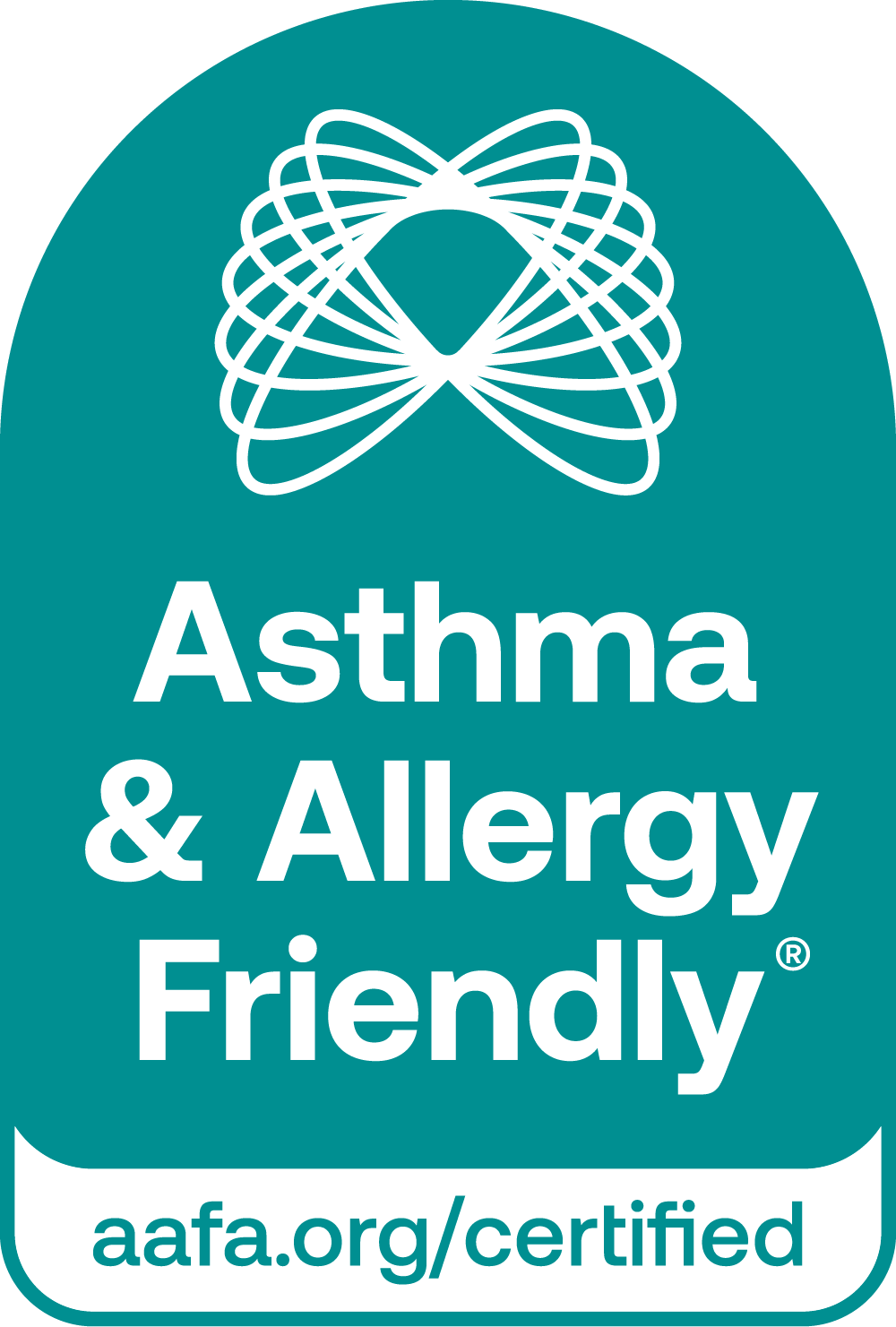
Earth Day 2025
This year’s theme is OUR POWER, OUR PLANET™
As we celebrate Earth Day 2025, we’re reminded of the power of collective action in safeguarding our planet. For over 50 years, Earth Day has mobilized individuals, businesses, and governments to address pressing environmental issues. This year, as we face the growing impacts of climate change, it’s more important than ever to focus on how these environmental changes affect not only our planet but also our health, particularly indoor air quality.
Climate Change and its Impact on Allergies and Asthma
Climate change has become more than an environmental issue. It is now a public health issue resulting in rising temperatures, changing weather patterns, and increased carbon dioxide levels which all contribute to longer allergy seasons and worsening air quality. This means more asthma and allergy triggers like pollen, mold, and even poison ivy . The Asthma & Allergy Foundation of America (AAFA) has pointed out that since 1995, warmer temperatures in the U.S. have led to allergy seasons that are 11 to 27 days longer. As pollen levels rise, so does the risk of asthma and allergy attacks, especially in vulnerable communities.
In fact, a significant increase in pollen levels is linked to higher levels of carbon dioxide in the atmosphere, which encourages trees to produce more pollen. Tree pollen, in particular, has increased by 21% since 1990, contributing to longer and more intense allergy seasons. This means that people with allergies are facing a more challenging environment than ever before.
Understanding the Allergy Capitals of 2025
The AAFA’s 2025 Allergy Capitals™ Report sheds light on the cities in the U.S. that are the hardest hit by allergies, and climate change is a key factor. The report ranks cities based on pollen levels, over-the-counter medication use, and the availability of allergy specialists. For the third consecutive year, Wichita, Kansas, topped the list, followed by New Orleans, Louisiana, and Oklahoma City, Oklahoma. These cities, along with many others, are experiencing increased pollen counts and worsening air quality due to shifting weather patterns.
In addition to pollen, climate change is also exacerbating air pollution, which further impacts those living with asthma and other respiratory conditions. The worsening air quality is a direct threat to public health, making it more important than ever to reduce exposure to allergens in indoor environments.
Clean Air, Clean Earth: The Role of Indoor Air Quality in Managing Allergies
While we cannot control outdoor allergens, we can control the quality of the air inside our homes. Reducing indoor allergen exposure is crucial for managing symptoms and preventing asthma attacks. This is where the Asthma & Allergy Friendly® Certification Program plays a critical role. Certified products, such as air purifiers, air filters, bedding, household appliances and cleaning products, have undergone rigorous testing to ensure they meet high standards for allergen reduction and low chemical emissions. These products help create healthier indoor environments, providing a much-needed buffer against the effects of climate change on indoor air quality.
Steps You Can Take to Reduce Asthma and Allergy Triggers
On Earth Day 2025, let’s not only reflect on the importance of collective action to combat climate change but also focus on practical steps we can take to protect our health. Here are some actions you can take:
-
Monitor Pollen Levels: Stay informed about pollen counts in your area, especially during peak allergy seasons, and take steps to minimize exposure by keeping windows closed or using air conditioning.
-
Maintain Indoor Air Quality: Make sure you are using high quality air filters or validated air purifiers. Regular cleaning can also help reduce the buildup of allergens.
-
Advocate for Climate Action: Join the movement to address climate change. Support policies that aim to reduce carbon emissions and promote sustainability. Every small action counts toward a bigger impact.
- Choose Certified Asthma & Allergy Friendly® Products: Look for products that meet rigorous standards for allergen reduction, such as Certified air purifiers, air filters, bedding, and cleaning products.
Earth Day 2025: A Call to Action
So for Earth Day 2025, let’s commit to improving not just the health of our planet but also the health of our communities. As we confront the growing challenges of climate change, we must take proactive steps to protect our indoor air quality and reduce the risks of allergies and asthma.
